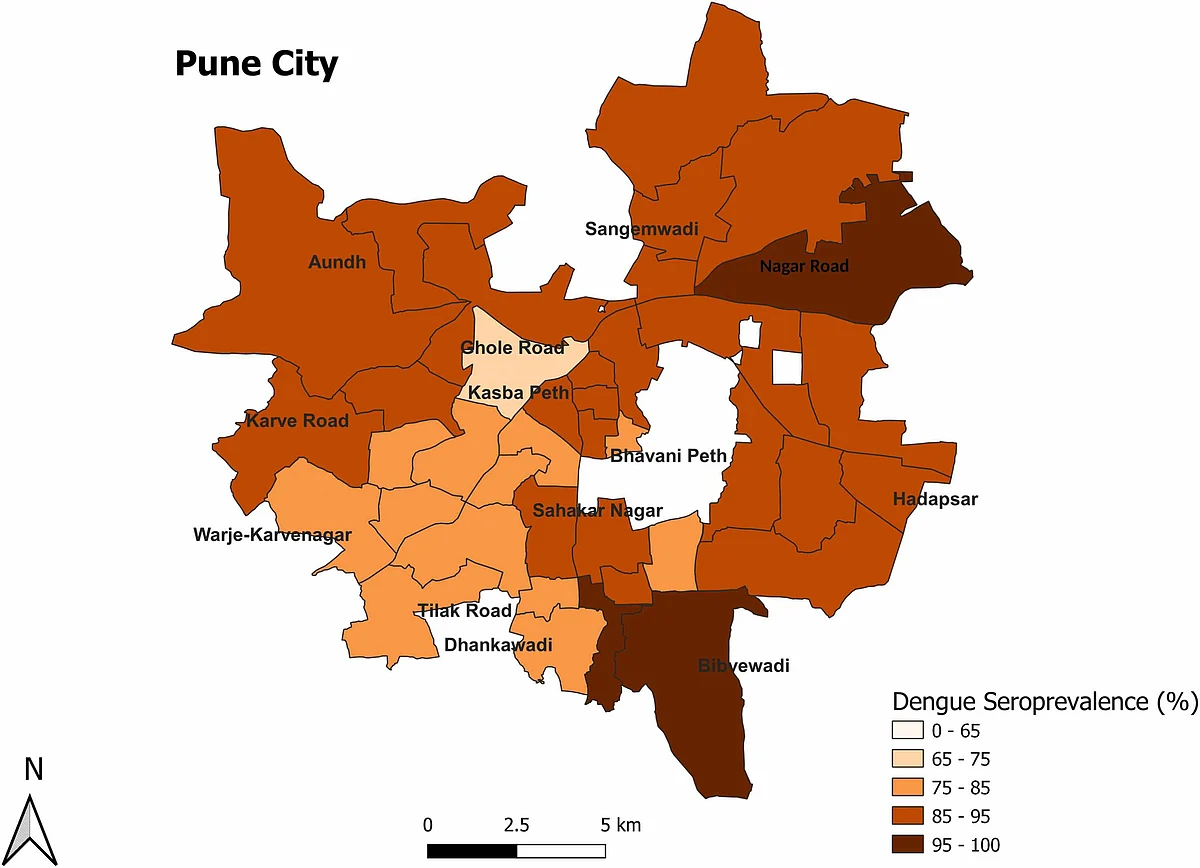A study conducted by the National Institute of Virology (NIV) has revealed a significant rise in dengue virus transmission intensity in Pune, Maharashtra, over the past decade. The research suggests that more than 85 per cent of the participants of the study had exposure to the dengue virus by 2019, indicating a strong case for considering the introduction of a dengue vaccine.
The study's findings also highlight the importance of conducting repeated serosurveys in various regions to assess the population's readiness for dengue vaccination. Notably, the research showed a substantial increase in dengue IgG seroprevalence from 62.9% in 2009 to 88.4% in 2019.
Area-wise seroprevalence
The highest seroprevalence was observed in Nagar Road (97.5%), while the lowest was in Ghole Road (68.9%). Wards like Aundh, Kasba Peth, Sahkar Nagar, Sangamwadi, Karve Nagar and Hadapsar have seroprevalence above 85%.

Age-stratified analysis
The age-stratified analysis demonstrated a rise in seropositivity from 70.1% in the 0–9 years age group to 85% in the 10–19 years group. The data also suggested that younger age groups had higher exposure to the virus over the years.
Considering that vaccine trials in India are planned for individuals aged 18 and above, the study supports the readiness of the population aged 9 and above for dengue vaccination, with approximately 85% seropositivity in Pune City. Repeated surveys in different regions can help determine region-specific readiness for dengue vaccine introduction.












